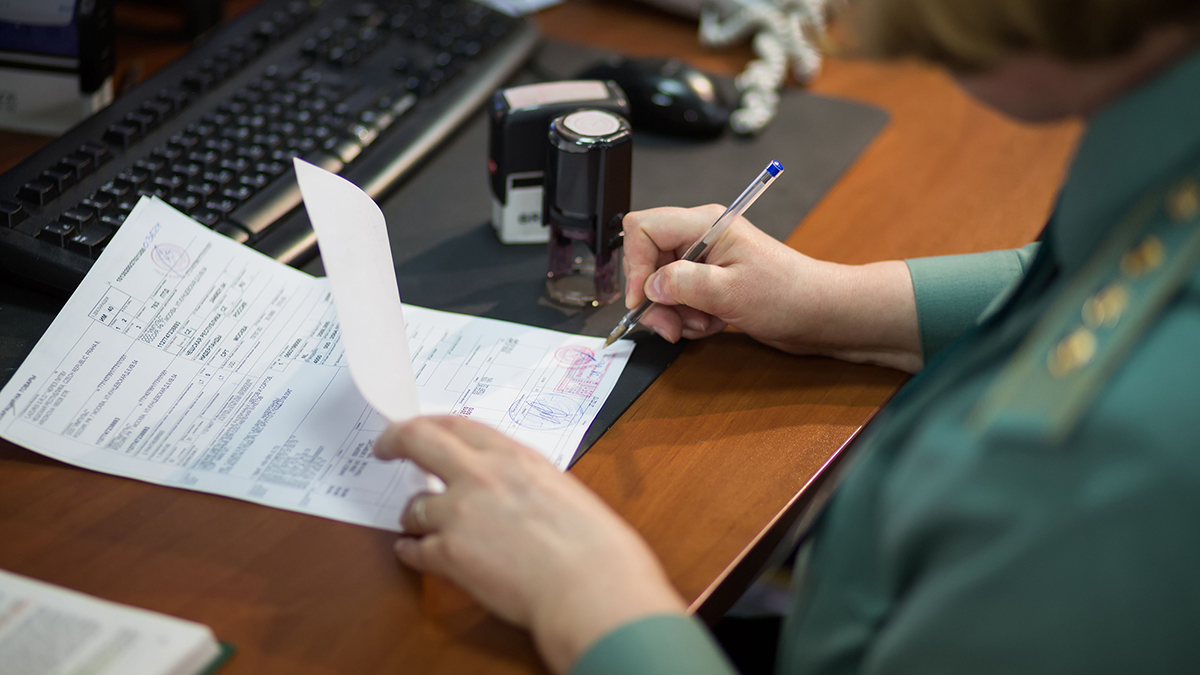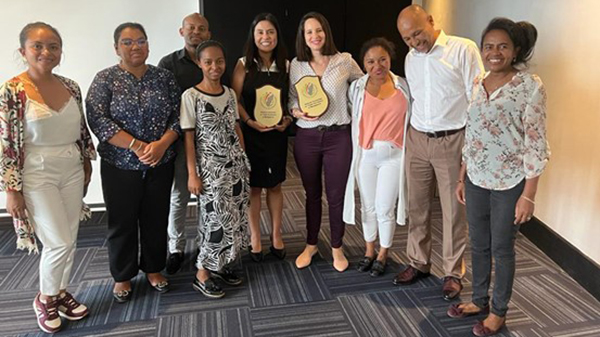Written by Arántzazu Sánchez Belastegui, UNCTAD, Article No. 111, [UNCTAD Transport and Trade Facilitation Newsletter N°99 - Third Quarter 2023]
Support from UK and UNCTAD is speeding up the clearance of goods at borders through implementation of international standards.
Dealing with administrative procedures is no one’s dream. They are usually boringly confusing, full of little print and big waiting lines. If navigating national red tape is often a headache, importing and exporting can be a chronic migraine. It involves two bureaucratic customs and legal regimes, and often, two languages. As such, it can constitute daily painful affairs for traders worldwide.
Trade facilitation aims at making cross-border trade simpler, faster, and cheaper. Ten years ago, 164 WTO Members agreed on 36 measures to facilitate the flow of goods across countries. They coined it as the World Trade Organization Trade Facilitation Agreement promising reforms to make procedures easier, more transparent, and even automated.
To make sure these reforms did not lack leadership or coordination, the Agreement mandated countries to set up so-called national trade facilitation committees (NTFCs). In these Committees, representatives of all border agencies and business associations were to become the body to coordinate and facilitate each country to successful implementation of reforms. However, as time has shown, many of these committees’ representatives did not even know the rules of the game they were to play.
According to the United Nations Conference for Trade and Development (UNCTAD), at least 124 countries have established such committees yet many struggle to have an impact, let alone meet regularly.
Challenges are common to developed and developing nations alike. Still, to use a sports analogy while the former have at their disposal the means of first-league players, the latter can often not even buy a ball.
Madagascar Trade Facilitation Committee is leading successful reforms for expediting clearance of goods
The National Trade Facilitation Committee of Madagascar was established in 2016. Since then, it has been pushing trade facilitation reforms, bringing some big wins to traders at home. Their resources are scarce. However, they have something that has proven better: genuine political support from the Government. It has produced a dedicated group of engaged and accountable public officials who are all pushing trade facilitation reforms forward. They come from Trade and Customs and together form the Permanent Secretariat of the Committee.
This Secretariat is the captain of the Committee. It usually meets every two weeks. Like many other Committees, it is responsible for the administrative work. It organizes meetings, sends invitations, drafts and distributes minutes, etc. But what makes this Secretariat special is its 10 professionals from Trade and Customs. They are putting in place some of the modernization reforms based on international standards and best practices. They know why goods get stuck at the border, what makes traders unhappy and what changes could make their lives easier.
Trade and Customs are aware that a team cannot win with only forward players. Accordingly, they involve other border agencies and business representatives when their specific expertise is needed. The latter are then spared from sitting in long meetings where they cannot contribute much.
Support from the international community helps accelerating reforms
In many countries, new members are appointed to a Trade Facilitation Committee without a proper explanation of what is expected from them. They might not even know what trade facilitation is, or what the Committee stands for. Often, decisions are taken at meetings, but no one is appointed to follow up on them. Consequently, decisions never translate into actions. The Reform Tracker is a project, team management and monitoring tool developed by UNCTAD to resolve these challenges. It has been implemented in over 25 countries, including Madagascar.
A combination of digital tools, webinars, self-pace courses, weekly coaching sessions, are brought in play when it comes to help Malagasy officials take informed decisions. Since 2020, UNCTAD has been supporting them as part of the UK-financed program “Accelerate Trade Facilitation”.
“Having UNCTAD’s coaching for the past few years has been a game-changer”, says Thierry Jose Razafindrainony, member of the Permanent Secretariat of the Malagasy Trade Facilitation Committee. “We feel equipped with a better understanding of why and how to implement the WTO Trade Facilitation Agreement and, thanks to the Reform Tracker, we have a clear overview of what is still to be done and who is responsible for what”.
In Madagascar, the Reform Tracker has been used to draft a trade facilitation roadmap. It identifies those actions that, by the end of 2027, will help cut the import and export time by a half. Under UNCTAD’s guidance, the strategic document was written with inputs from nearly 50 Malagasy decision makers. They are now able to monitor its implementation in real-time thanks to this UN online tool.
Working with the Reform Tracker allows UN experts to be part of the Committee’s day-to-day hurdles. In the weekly virtual meetings between UNCTAD and the Permanent Secretariat, Madagascar officials might seek for advice when facing difficulties with reforms.
One example can be found in the Madagascar Trade Information Portal. In this one-stop website, traders can find step-by-step explanations on how to import and export. A local software company has implemented the Portal under the leadership of the Permanent Secretariat. But UNCTAD experts’ recommendations are reflected in every corner of the web.
These are just the first sprouts of our trade facilitation seeds. A dedicated Malagasy team is working with the UN body to map and simplify the import and export procedures for sugar and clove. These two products are vital in Malagasy’s diet and economy. As such, the Accelerate Trade Facilitation Program will make the information found on the trade portal more accurate and truthful to the experience of businesses. With easier and more transparent procedures, farmers might be tempted to try new markets and export their products. And hopefully, the time and money savings from the proposed simplifications will soon reach everyone’s pockets in Madagascar.
Author: Arántzazu Sánchez Belastegui, Economic Affairs Officer, Trade Facilitation Section, UNCTAD



